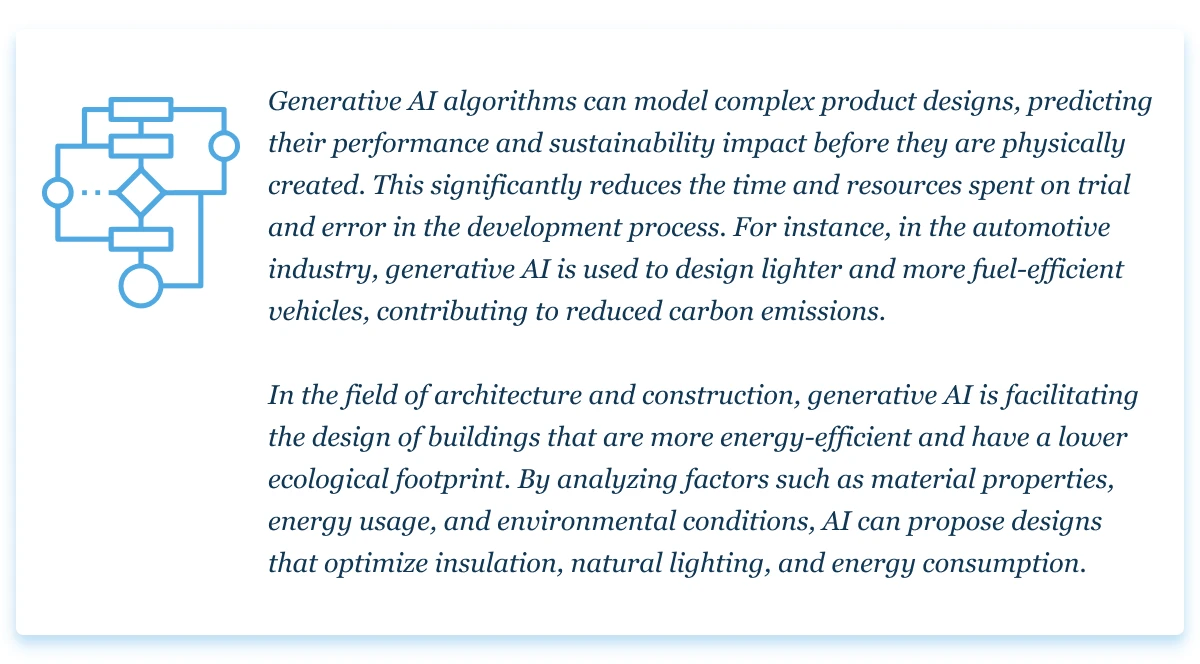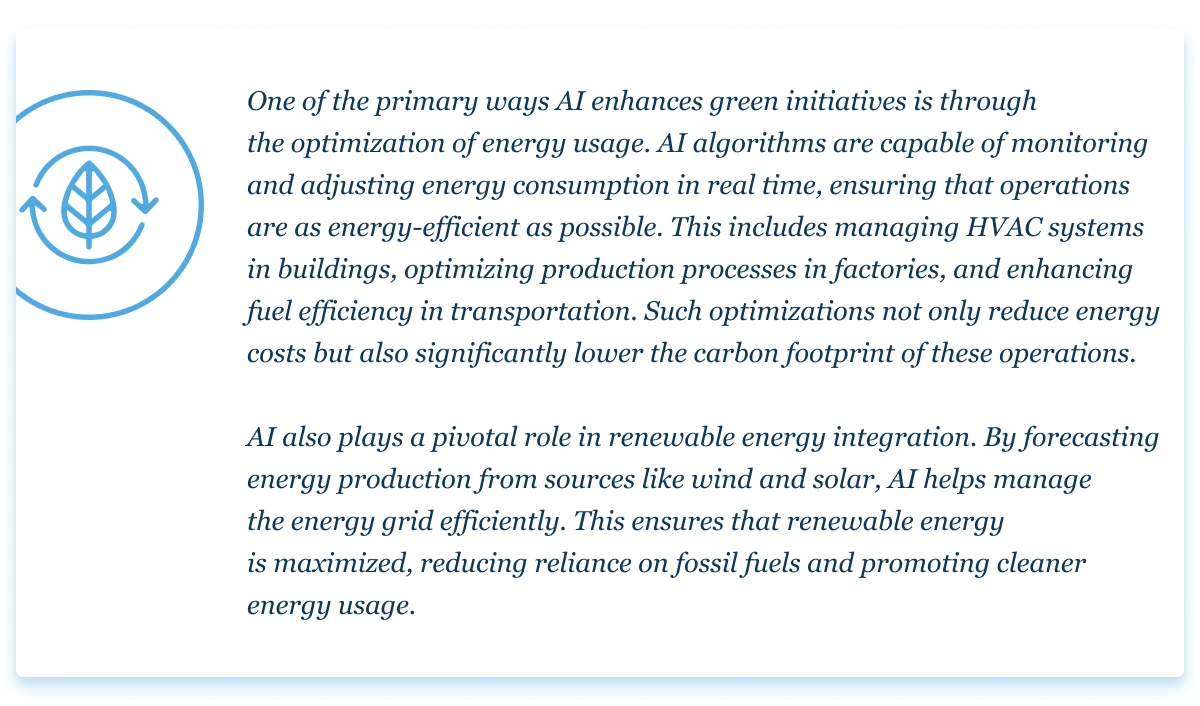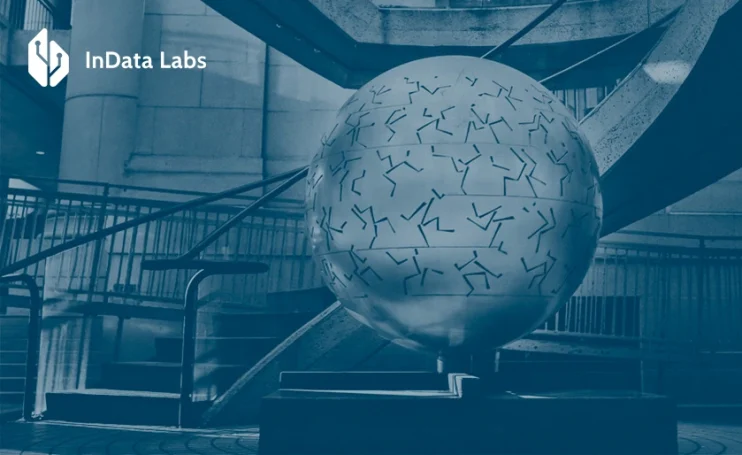AI researchers and businesses are exploring how AI tools can be effectively used in monitoring and reducing environmental impacts. This synergy between AI and sustainability is transforming how companies reduce their environmental impact. By harnessing the power of AI, businesses can analyze and interpret vast amounts of data, making more informed decisions that align with sustainable practices.
In today’s rapidly evolving business landscape, the application of AI, particularly generative AI, is becoming a pivotal way to promote environmental sustainability. The impact of AI, especially through machine learning and big data analytics, is redefining not just operational efficiency but also enabling businesses to address their carbon footprint and greenhouse gas emissions. As companies strive to align with the Sustainable Development Goals, the role of artificial intelligence in mitigating environmental impacts is increasingly coming to the fore.
Today, the application of AI software extends beyond its traditional boundaries, with AI being included in various aspects of business operations, from data center management to product development. The potential of AI lies in its ability to provide innovative solutions to complex sustainability challenges, making it an indispensable asset for businesses committed to environmental stewardship and social responsibility.
You might be wondering: what is artificial intelligence in simple words? Artificial intelligence, or AI, refers to the ability of computers or machines to perform tasks that typically require human intelligence. This includes things like recognizing speech, making decisions, understanding languages, and solving problems. It’s like giving machines a kind of ‘brain’ that allows them to learn, adapt, and even make decisions based on the data they process.
This technological marvel is increasingly playing a pivotal role in driving business sustainability. As we delve deeper into the relationship between AI and sustainability, it becomes evident that integrating AI into business strategies offers not just enhanced operational efficiency but also a significant leap toward environmental responsibility.
From optimizing resources to aligning with global sustainable development goals, AI’s potential in fostering sustainable practices is vast and multifaceted. This exploration will uncover how AI technologies, including advanced machine learning and big data analytics, are instrumental in redefining traditional business approaches and leading the way toward a more sustainable future.
AI for sustainability in resource management
The role of AI for sustainability in resource management is transformative, offering innovative solutions to some of the most pressing environmental challenges. Through the application of advanced AI technologies and machine learning, businesses can now analyze complex data sets related to resource utilization in unprecedented ways. This includes optimizing water and energy use, managing raw material supplies more efficiently, and significantly reducing waste.
The impact of AI in resource management is multi-faceted. For instance, AI systems equipped with predictive analytics can forecast demand for resources with high accuracy, allowing companies to adjust their procurement and usage strategies proactively. This not only ensures operational efficiency but also minimizes the risk of resource depletion and excess waste generation.

Source: Unsplash
In agriculture, AI tools are being used to monitor soil and weather conditions, enabling farmers to make more informed decisions about water usage and crop planting. This optimization leads to better resource management, ensuring sustainability in food production. In manufacturing, AI technologies are instrumental in optimizing the supply chain. By analyzing a wide range of data, from production patterns to logistics, AI can identify the most resource-efficient pathways, reducing the carbon footprint of manufacturing processes.
Furthermore, AI plays a crucial role in energy management. AI systems in data centers and industrial facilities can predict energy needs and adjust usage in real time, contributing significantly to energy efficiency. This is particularly important in reducing the environmental impacts associated with energy-intensive operations. Moreover, the use of big data in AI enables businesses to perform comprehensive life cycle analyses of their products and services. This holistic view helps identify stages where resource use is high and find more sustainable alternatives.
The artificial intelligence application in resource management is not only a testament to technological advancement but also reflects a growing consciousness towards environmental sustainability. By effectively utilizing AI, businesses are not only enhancing their operational efficiency but are also taking significant strides towards achieving their sustainable development goals.
Energy consumption
While sustainable AI can also help with cutting down energy consumption in general, it is primarily focused on the sustainability of AI technology. It involves a set of principles and strategies to reduce the carbon footprint and energy consumption associated with AI-related developments.
In the industrial sector, AI algorithms are employed to manage and optimize energy use across various operations. These systems can monitor equipment performance and energy usage, scheduling maintenance and operation during off-peak hours to reduce energy costs and consumption.
Moreover, AI plays a pivotal role in the integration of renewable energy. By predicting energy production from renewable sources like solar and wind, AI assists in balancing the grid, ensuring a stable energy supply while maximizing the use of renewable sources. This is crucial in transitioning to a more sustainable energy mix.
AI also contributes to the development of smart grids, which are essential for efficient energy distribution. Smart grids, powered by AI, can dynamically adjust the flow of electricity based on real-time demand and supply conditions, minimizing waste and enhancing energy efficiency.

Source: Unsplash
The application of AI in energy consumption extends to consumer electronics and appliances as well. AI-driven smart appliances can optimize their operation based on user behavior and preferences, contributing to lower household energy consumption. The use of AI in managing energy consumption exemplifies how technological innovation can be harnessed for sustainability.
By reducing energy use and promoting the integration of renewable energy, AI for sustainable development is playing a crucial role in mitigating environmental impacts and advancing towards a more sustainable future.
AI and sustainable development goals
The alignment of AI with the Sustainable Development Goals (SDGs) is a crucial aspect of modern corporate responsibility. AI offers unique capabilities in advancing these goals by enabling businesses and governments to track and analyze their progress toward sustainability objectives. The ability of AI to process and interpret large volumes of data is invaluable in measuring a wide array of sustainability metrics, from reducing poverty and hunger to promoting clean energy and combating climate change.
One of the key areas where AI contributes to SDGs is in the field of environmental protection. Through big data analytics and advanced AI, companies can monitor their carbon footprint and greenhouse gas emissions, making informed decisions to reduce their environmental impact. This includes optimizing manufacturing processes, reducing waste, and enhancing energy efficiency.
AI also plays a pivotal role in social sustainability. For example, AI can analyze patterns in economic data to identify areas where inequalities are most pronounced, helping policymakers to devise targeted interventions. In healthcare, AI is used to predict outbreaks, improve diagnosis and treatment, and make healthcare more accessible, directly contributing to the goal of good health and well-being.

Source: Unsplash
Furthermore, AI’s contribution to quality education is significant. AI-driven educational tools and platforms offer personalized learning experiences, making education more accessible and effective. This not only promotes lifelong learning opportunities but also helps in reducing educational inequalities. The impact of AI on sustainable cities and communities is another area of importance. AI technologies assist in urban planning, traffic management, and public safety, making cities more livable, efficient, and sustainable. In addition, AI’s role in fostering innovation and building resilient infrastructure is vital in achieving several SDGs.
By aligning AI with the Sustainable Development Goals, businesses, and governments can ensure that their efforts in adopting AI technologies not only drive economic growth but also contribute positively to social and environmental objectives.
Generative AI and sustainability in product development
Generative AI’s role in product development is revolutionizing sustainability practices. This innovative application of AI is enabling businesses to design and develop products that are not only efficient and cost-effective but also environmentally friendly. By harnessing the power of generative AI, companies can simulate and analyze countless design variations to identify those that use fewer resources, generate less waste, and have a reduced environmental impact.

In the field of architecture and construction, generative AI is facilitating the design of buildings that are more energy-efficient and have a lower ecological footprint. By analyzing factors such as material properties, energy usage, and environmental conditions, AI can propose designs that optimize insulation, natural lighting, and energy consumption.
The application of generative AI also extends to packaging design. Companies are using AI to develop packaging solutions that are not only attractive and functional but also sustainable. This includes using materials that are biodegradable, recyclable or require less energy to produce. Generative AI is also being employed to develop sustainable fashion. By predicting trends and consumer preferences, AI can help fashion brands produce clothes that are more aligned with sustainable practices, reducing overproduction and waste.
In essence, generative AI is an invaluable tool in the journey towards sustainable product development. By enabling the design of products that are environmentally conscious and resource-efficient, generative AI is helping businesses meet their sustainability goals and reduce their ecological footprint.
AI for sustainable development in supply chains
AI for sustainable development in supply chains is transforming how businesses manage their operations from a sustainability perspective. AI technologies offer unprecedented visibility and control over supply chain processes, ensuring they are not only efficient but also align with environmental and ethical standards.
AI’s role in sustainable supply chains is multifaceted. For instance, AI algorithms can analyze supplier data to ensure compliance with sustainability criteria, such as fair labor practices and environmentally friendly operations. This helps businesses maintain ethical supply chains, reducing the risk of reputational damage and ensuring compliance with regulatory standards.
Furthermore, AI is instrumental in optimizing logistics and transportation within supply chains. By predicting demand and analyzing transportation routes, AI can minimize unnecessary shipping, reducing greenhouse gas emissions and lowering transportation costs. This optimization also extends to inventory management, where AI can forecast demand more accurately, preventing overproduction and reducing waste.
In agriculture, AI is being used to track and optimize the entire supply chain, from farm to table. This includes monitoring crop health, optimizing harvest schedules, and ensuring efficient distribution, thereby reducing food waste and ensuring food security.

Overall, the application of AI in supply chains is a critical component of sustainable development. By ensuring supply chains are efficient, ethical, and environmentally friendly, AI is enabling businesses to contribute positively to sustainable development goals and reduce their overall environmental impact.
Monitoring environment with sustainability AI
The role of Sustainability AI in monitoring and managing environmental impact is crucial in today’s eco-conscious business landscape. In an era where environmental sustainability is not just a moral imperative but also a business necessity, AI is proving to be an indispensable tool. By leveraging the capabilities of advanced AI and machine learning, businesses can gain real-time insights into their environmental footprint, enabling them to make informed decisions that align with sustainability goals.
One of the primary areas where AI excels is in tracking and reducing greenhouse gas emissions. Companies are using AI systems to analyze emission data from their operations and supply chains. This analysis helps identify key areas where emissions can be reduced, such as optimizing energy use, changing material sources, or altering logistics routes. AI-driven models can also predict future emission trends based on current practices, allowing companies to proactively implement strategies for reduction.
Energy management is another critical area where Sustainability AI is making a significant impact. AI tools are being used to optimize energy consumption in manufacturing plants, office buildings, and data centers. By analyzing patterns in energy usage and external factors like weather conditions and operational schedules, AI systems can adjust energy consumption to minimize waste and maximize efficiency. This not only contributes to reducing the overall carbon footprint but also results in substantial cost savings.
AI is also helping businesses to minimize waste production and enhance recycling efforts. AI algorithms can sort and categorize waste more efficiently than manual processes, increasing recycling rates and reducing the amount of waste sent to landfills. Additionally, AI models can predict waste generation patterns, helping companies optimize their waste management strategies and reduce overall environmental impact.

Source: Unsplash
Water conservation is another area where AI technologies are being employed. AI systems can monitor water usage across various business operations, identifying areas where water can be saved and reused. This is particularly important in industries like agriculture and manufacturing, where water usage is high.
AI is also being used to monitor and protect biodiversity. By analyzing data from sensors and satellites, AI can track changes in ecosystems and wildlife populations, helping in conservation efforts. This is crucial in maintaining ecological balance and preserving natural resources.
Furthermore, AI-driven analytics are invaluable in environmental reporting and compliance. Companies can use AI to compile comprehensive reports on their environmental performance, ensuring transparency and accountability. This not only helps in meeting regulatory requirements but also builds trust among stakeholders, including customers and investors.
In essence, using Sustainability AI in monitoring and managing environmental impact represents a significant advancement in corporate environmental responsibility. By providing detailed insights into their environmental footprint and enabling proactive management of resources, companies are not only contributing to a more sustainable future but are also reaping economic benefits.
Enhancing green initiatives
Sustainable AI involves operating artificial intelligence systems in alignment with practices that support sustainable business operations. It supports green initiatives by optimizing resource use, reducing waste, and enhancing efficiency in various processes. As businesses increasingly recognize their role in sustainable development, AI emerges as a key player in driving eco-friendly practices. From automating energy-efficient processes to developing green business models, AI’s potential to promote sustainability is vast and diverse.

In addition, AI is instrumental in developing sustainable urban environments. AI-powered smart city solutions manage traffic flow, reduce congestion, and optimize public transportation, all of which contribute to lowering emissions and improving air quality. Smart city initiatives also include AI-driven waste management systems that enhance recycling efforts and reduce landfill waste.
AI technologies are also facilitating sustainable agriculture practices. By analyzing data on soil health, weather patterns, and crop yields, AI can provide farmers with insights to optimize farming practices, reduce resource usage, and minimize environmental impact. This includes precision agriculture techniques that ensure water, fertilizers, and pesticides are used efficiently, reducing runoff and pollution.
Moreover, AI is enabling businesses to develop sustainable supply chains. By providing insights into the entire supply chain, AI can identify the most sustainable suppliers, optimize logistics for lower emissions, and ensure ethical practices throughout the supply chain. This not only reduces environmental impact but also promotes corporate social responsibility.
AI-driven innovation in product design and material usage is another area contributing to sustainability. AI can assist in designing products that are more durable, easier to repair, and more recyclable, supporting a circular economy and reducing waste.
Furthermore, AI can assist in tracking and meeting sustainability goals. Companies can use AI tools to monitor their progress toward specific environmental objectives, ensuring that their operations align with their sustainability commitments. AI also contributes to raising public awareness about environmental issues. AI-driven platforms can engage consumers and stakeholders, providing them with information about sustainable practices and encouraging environmentally friendly behavior.
Final words
In conclusion, the synergy between AI and sustainability is a powerful force driving the future of business towards greater efficiency and environmental responsibility. As we’ve explored, AI’s role extends from optimizing resource management to revolutionizing product development and supply chain operations, all while aligning with global sustainable development goals.
The adoption of AI technologies in monitoring environmental impacts and enhancing green initiatives underscores a significant shift in corporate strategies toward sustainability. Businesses embracing AI for sustainability are not only contributing to a healthier planet but also positioning themselves as innovative and forward-thinking leaders in a rapidly evolving global market. This integration of AI into sustainability efforts showcases a promising path where technology and environmental stewardship converge, leading to a more sustainable and prosperous future for all.



